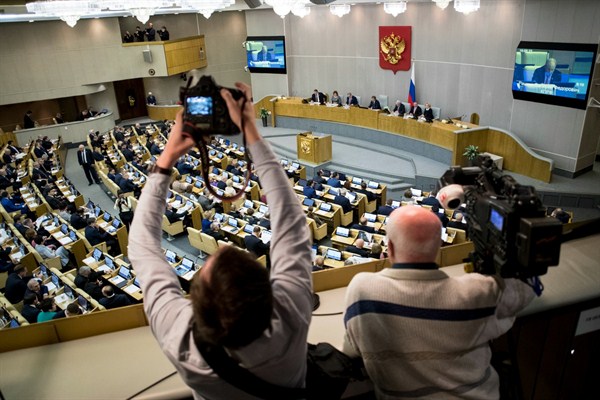Editor’s Note: This article is part of an ongoing series about press freedom and safety in various countries around the world.
On Dec. 5, Russia designated two U.S. government-funded broadcasters, Voice of America and Radio Free Europe/Radio Liberty, as “foreign agents,” under a new law signed by Russian President Vladimir Putin in late November. The moves came in response, Moscow says, to the United States forcing the Russia-backed news broadcaster RT, formerly known as Russia Today, to register as a foreign agent on Nov. 13. U.S. intelligence agencies described RT as “Russia’s state-run propaganda machine” in their assessment earlier this year that it was part of Moscow’s efforts to interfere in the 2016 American presidential election. In an email interview, Svetlana Pasti, a senior researcher at the Center for Journalism, Media and Communication at the University of Tampere in Finland, explains how legislation has been used as a cudgel against the press in Russia and looks at the state of independent Russian media overall.
WPR: How has legislation been used to promote or stifle a free press in Russia? And how might the latest piece of legislation requiring foreign journalists and media outlets to register as foreign agents have an impact?

